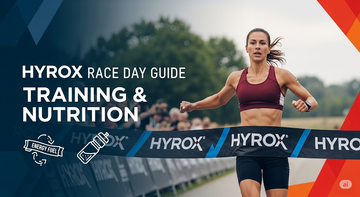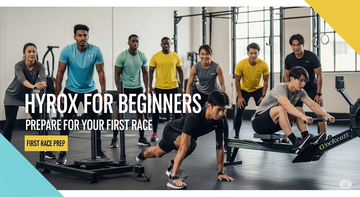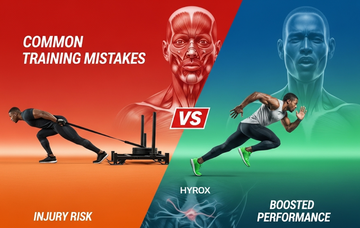When it comes to building muscle, tons of scientific evidence has proven that some elements in your diet are more important than others, like fruits and vegetables. Hence, following a vegan bodybuilding diet is something you should consider.
What Is Vegetarian?
According to the Vegetarian Society, a vegetarian is a person who doesn't eat any meat, poultry, fish, or by-products of slaughtering animals.
Hence, a vegetarian diet contains a variety of fruits, vegetables, whole grains, beans, nuts, and seeds. The inclusion of dairy products depends on the type of diet you follow, too. The most well-known types of vegetarians include Lacto-ovo, Lacto, Ovo vegetarians, and Vegans.
Among these kinds, Lacto-ovo vegetarians avoid all animal meat sources, but they do consume eggs and dairy products. Besides, Ovo vegetarians don't eat any animal products except eggs. Vegans refuse both meat and animal products.
On the other hand, people who don't consume poultry meat except fish are considered Pescatarians. Meanwhile, part-time vegetarians are called Flexitarians. Those Pescatarians and Flexitarians eat meat, although they are regarded as vegetarians. So, they somehow don't meet the concept of vegetarianism.

What Is A Vegan Diet?
Vegan diet can be considered the most stringent form of vegetarianism. The Vegan Society charity has defined Veganism as a way of life that excludes all animal exploitation forms as much as possible. Therefore, a vegan diet avoids not only animal meat but also dairy products and ingredients of animal origin such as gelatin, honey, carmine, pepsin, shellac, casein, and some forms of vitamin D3.
Simply put, a Vegan weight-loss diet is a vegan approach that completely eliminates foods of animal origin, even milk, eggs and cheese, and honey. Instead, you will use fruits, vegetables, whole grains, legumes, and seeds.
Because of the inclusion of only vegetables, roots, fruits, and whole grains, and the complete elimination of fat-rich animal-based foods, the Vegan diet helps with rapid weight loss. It also reduces the risk of cardiovascular disease, diabetes, and premature death. Avoiding processed meats also helps to reduce the risk of Alzheimer's disease and the risks of cancer.
Pros And Cons Of A Vegan Weight Loss Diet
Pros
Vegan diets, if applied correctly, will definitely significantly improve overweight and obesity. The vegetarian foods that are low in fat and high in fiber can make you feel full longer. Simultaneously, it provides less energy than animal products, forcing the body to consume excess fat. As a result, it boosts to lose weight effectively and maintain a stable body mass index (BMI).
Moreover, a vegan diet also supports the disease treatment of blood pressure and diabetes when reducing the amount of sugar and bad cholesterol in the blood.
Cons
Despite some health benefits, a vegan weight loss diet poses a few risks if you do not have sufficient nutritional knowledge or a scientific eating plan. Because of the complete elimination of animal foods, you will lack some essential substances for your body, such as vitamin D, iodine, iron, calcium, zinc, leading to nutritional imbalance.
Lack of vitamin B12 and iron will lead to anemia and damage the nervous system. If the body does not have enough vitamin D needed, it will weaken the bone and muscle structure, which is very easy to get osteoporosis. In addition, applying too strict diets also significantly impacts sexual and reproductive functions, especially women - who are often obsessed with weight.
Vegan Nutrition For Bodybuilders
The rules for building muscle for vegans are similar to other bodybuilders, but you'll have to put in a little extra effort on your nutrition.
Energy balance, which is how much you eat versus what you lose, is still the number one factor determining whether you will lose fat or gain weight. If you suffer from a caloric deficit through diet or exercise, you will lose weight.
Vegan Protein For Bodybuilders
Protein is made up of amino acids that are the building blocks for all muscle growth. Therefore, high protein intake is essential for vegan bodybuilders. Our body cannot make certain amino acids on its own, so we still need to be supplemented every day.
Between 2.0g and 2.4g of protein per kilogram of body weight is a safe range for most bodybuilders, whether they're on a diet or trying to build muscle.
When it comes to protein, vegan bodybuilders need to pay special attention as not all proteins are created equal. Athletes need to ensure that at least a few of their meals contain complete protein sources, meaning they have all nine essential amino acids. For this reason, a vegan bodybuilder can add several meals to ensure food quality and get the total amount of protein needed.
Foods containing complete protein sources include:
- Quinoa
- buckwheat
- Soybean
- Quorn
- Rice and beans
- Ezekiel Bread
- Seitan
A vegan bodybuilder should also keep in mind that some of these complete protein sources contain high amounts of carbohydrates. If you want low body fat, you should look at the number of calories you have eaten first. This is another reason why protein powder supplementation can be helpful since it contains lower amounts of carbohydrates and calories.
Vegan Fat Bodybuilding
Similar to protein, not all fats we eat are the same. For example, the body needs essential fatty acids. "Essential" here means your body cannot produce it, so they need to consume fats that come from your diet.
Omega-3 and omega-6 are considered essential fats. A diet rich in omega-3 reduces heart disease risk, improves nerve health, burns fat, and fights inflammation. As we can see, it's quite essential for the body. Bodybuilding is an energy-intensive sport, and it can help with muscle tissue repair by consuming omega-3.
Fat can be stored in the body, so even though you take it from a good fat source, you still need to consider its amount. Here are some foods containing omega-3 fatty acids:
- Linseed
- Chia seeds
- Hemp seeds
- Leafy green vegetables
- Seaweed
- Beans
Without a doubt, the above foods are healthy and have a positive impact on your bodybuilding. However, the question that arises for vegan bodybuilders is how much omega-3 do they actually absorb?
All of these food sources undergo a transformation in the body to make them "bioavailable.” In other words, your body converts them into a form of activity that can be useful. The problem is this transition isn't really that good. Even though it seems like you are eating enough, your body isn't getting what it needs - even less if you're in a daily calorie deficit. In that case, you can get omega-3s from Now Foods Omega-3. This type of omega-3 has the same function as fish oil that is well absorbed without any ethical issues.
Vegan Carbohydrates For Bodybuilders
Vegetables, starches, and grains are the things people on a vegan diet eat. These foods all contain carbohydrates. Vegetables have fewer carbohydrates than grains and starches.
Not all refined foods are bad, but vegan bodybuilders can still eat the majority of carbohydrates from low-diet foods. Less refined foods often have higher levels of vitamins and minerals that can positively affect your performance.
Multivitamins Bodybuilding
This is an aspect where some vegans may be deficient, especially when you are a vegan bodybuilder and exercise a lot. Vegetables will provide a lot of vitamins and minerals, but others are not converted well in the body, just similar to fatty acids.
These overlooked ones mainly are iron, zinc, and vitamin B12 because these are found in higher amounts, more available in animal products. Your vegan bodybuilding diet isn't always completely devoid of these nutrients, but somehow it cannot reach its optimal level.
In particular, women, in general, need higher iron intake and being vegetarian could further reduce the amount they are getting. The easiest and most practical way to ensure that you get enough of these nutrients is to consume them with a vegan-friendly source.
Vegan Bodybuilding For Bodybuilders
Carbohydrates are responsible for the performance, while protein is needed for muscle growth. Both are important for training, so it takes time to maximize results.
It is ideal to consume 20-30g protein before exercise. You may use more, but there will be no additional benefit with muscle growth or recovery. The same amount of protein should be consumed after two hours of exercise.
Carbohydrate recommendations will vary from diet phase to bulking phase. During the diet phase, there will be fewer calories and carbohydrates than the bulking phase. Try to consume carbohydrates with your protein meal post-workout for better muscle recovery. Your carb and protein intake will depend on your eating habits (high carb or low carb) as well as how comfortable you feel when exercising on an empty or full stomach.
Related Articles:










